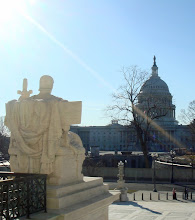Week 41: Healthcare
In this election cycle, at least in the Democrat primaries, the topic of healthcare is alive and well. Despite the mandates that were part of the Affordable Care Act, also known as “Obamacare,” politicians – including those who passed the act – continue to bemoan the number of uninsured. Despite the very name of the act, the cost of health insurance continues to spike making coverage less affordable, with many people only able to afford catastrophic coverage. Despite their pledges that people could keep their doctors, many found this to be just one more lie coming out of the halls of Congress.
And despite a key component of the act, the individual mandate, being declared unconstitutional, members of Congress want us – We the People – to give them another chance to overhaul the healthcare system. It reminds me of something Ronald Reagan said at the 1964 Republican convention. He said, “The more the plans fail, the more the planners plan.” It seems that is what we are being asked to do – to give our assent to the planners so that they can come up with some new scheme to regulate our healthcare.
Look at Medicare and Medicaid. Poor patient experiences and waste, fraud and abuse in these programs are legendary. Look at “Obamacare.” A key part of the program, the individual mandate (and perhaps the whole program), has been declared unconstitutional, which is to say illegal.
What other programs have seen poor service and high costs under government regulation? Stated another way, are there any government-regulated programs that have improved cost, service and outcomes to those they are supposedly intended to help? I challenge you, kind reader, to offer any example.
What do we know about cost, service and outcomes under components of the economy that have been heavily regulated? Take two famous examples: airlines and trucking. Prior to deregulation, the industry powers colluded with Congress to keep out new entrants into the markets, to all but eliminate competition, to control price mechanisms, and to ensure that the consumer was kept at the will of the industry and their benefactors in Congress. What do we know about deregulation in these industries? The Airline Deregulation Act of 1978 and the Motor Carrier Act of 1980 both reduced rate-setting, route-setting and market entry requirements and restrictions imposed by the federal government, and it eliminated the authoritarian boards overseeing these industries. The results of both acts were increased service options, lower costs, greater efficiency and quality. In short, they provided greater choice and affordability for the consumer.
There is every reason to expect and no reason to doubt that deregulation of the healthcare and health insurance sectors of the economy would result in similar types of benefits to consumers. Greater regulation always results in the realization of the exact opposite expectations and doubts.
As the Affordable Care Act was being crafted, House Democrats were busy soliciting input from the very industries (i.e., insurance and corporate health systems) they blamed for causing suffering and death. Now that we have been living under this regulation for a while, who is benefitting? Insurance companies’ profits have surged billions of dollars since the passage of “Obamacare.” Legislators’ power and control over their constituents have grown, because, despite the passage of their legislation, the condition in which most citizens find themselves has not improved.
Another critical flaw in the Affordable Care Act is that it exempts the lawmakers from the law itself. If it’s so great, why are they not subject to it, too? It’s because they know that it is a scam to line the pockets of the insurance industry and to reinforce legislators’ power at the expense of you and me, the people that politicians call “average Americans.” I, for one, resent that moniker. There is nothing “average” about any American. We are an exceptional people, despite what members of Congress are trying to do to us, and have been doing to us since the days of the New Deal and the Great Society.
As we hurtle toward November, let us consider who benefits from regulation and control of the healthcare industry – the people or those in power? I was going to include the insurance industry with those in power, but I really cannot blame them. It’s Congress who sets up the rules and perverse incentives in which industry operates. They would be foolish not to avail themselves of the perks that members of Congress offer.
For nearly a century, we’ve been trying government intervention – to what end? Has the political class made things better? Any objective assessment leads us to the realization that they are no better (if not worse). Maybe it’s time for something different, something our founders envisioned for this exceptional nation and its citizens. Consider freedom and liberty.
